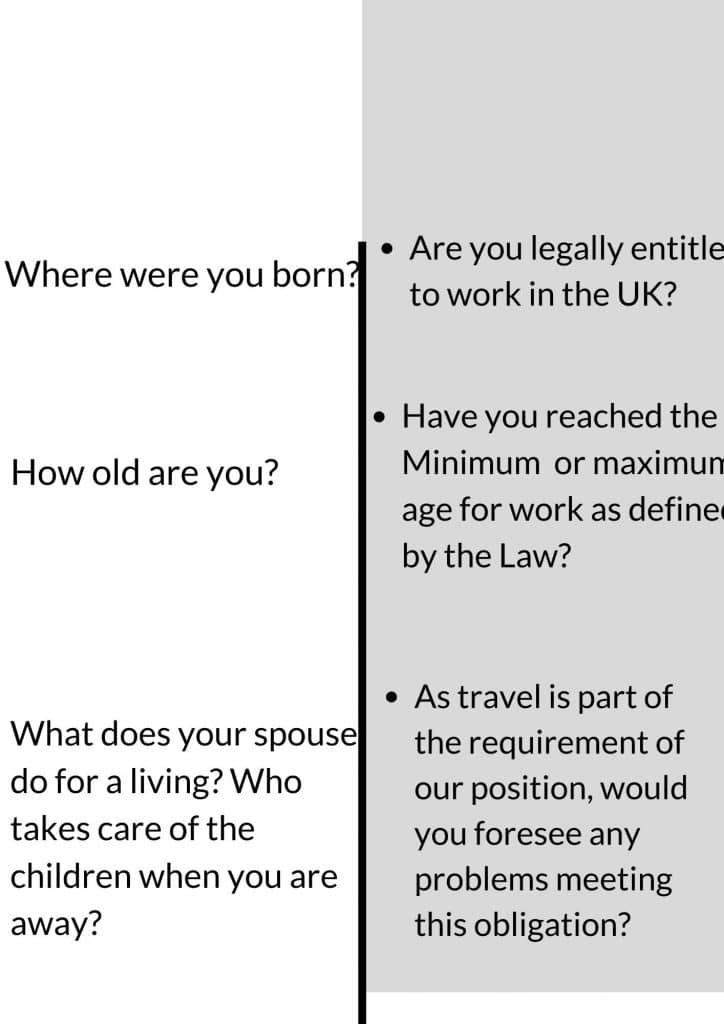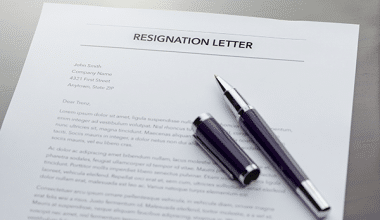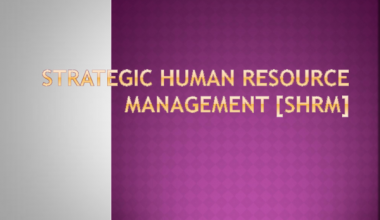As an employer, are you searching for questions that will assist you in selecting and hiring the most qualified candidate for a position? On the other hand, have you been requested to call in for an interview, or are you a job seeker hoping to land your ideal job? Stay calm; I’m here to assist you. As an HR personnel in my company, I’ve used the questions I’m going to share with you to recruit top talent for open positions in our company. To help you locate the right individual for the job and land your dream job, I have put together some forms and common phone interview questions.
It violates the human rights of the individuals being queried to ask them certain inappropriate questions. This means that, as a recruiter, you should be well-versed in crafting effective questions and knowing how to structure them to achieve your desired outcome.
Key Points
BusinessYield
- As part of the initial employment process, several companies use phone screening interviews. In doing so, they hope to ascertain whether the applicant possesses the requisite abilities for the position and would be an asset to the company.
- In behavioral phone interview questions, candidates are expected to give a complete story of an event (situation/task), be specific about what they did/said/felt (action), and give the result of the action (result).
- Situational interview questions test the candidate’s ability to think on their feet and respond in situations that are likely to arise in this position.
- Human rights commissioners have greatly limited the area of questioning; therefore, phone interview questions ought to be appropriate and well-structured.
- A simple algorithm for answering situational phone interview questions is the ARC.
Phone Interview Overview
Why a phone interview? Phone interviews have recently emerged as a prominent method of hiring candidates for specific job roles. Candidates do not have to leave their comfort zones to participate in these interviews, thanks to our modern dispensation and the advent of technology. Upon selection, the selected individual will then be able to confidently visit the office or place of employment to become further acquainted.
If I were to apply for a job in the UK while living in South Africa, for instance, I could find out via a phone interview whether I am qualified for the position, and if I am, I could then plan my trip to the UK accordingly. Now you understand the value of a phone interview.
The only real difference between a live interview and a phone interview is the medium—voice over Internet Protocol (VoIP)—rather than face-to-face interaction. You can acquire the desired outcome quickly and efficiently.
As an HR professional or recruiter, you should keep in mind that the selection process consists of several processes, such as
#1. Screening Applications and Resumes:
When you are in this phase, you will compare the resumes that you have gotten for a job posting to the job description. You will then select the resumes that are a perfect match and move on to the next phase, which is:
#2. Testing and Reviewing Work Sample:
During this step, you will have the opportunity to evaluate the individuals who have been chosen for the position by giving them an assessment test to determine their degree of expertise and knowledge about the work. After that, you will move on to the subsequent stage.
#3. Interviewing Candidates:
If you do not wish to or are not interested in participating in a face-to-face interview, you can take advantage of phone interviews. During this step, you will be able to select the most suitable candidate for the offered position. After that, we move on to the subsequent procedure.
#4. Checking References and Background:
This is how a background check works: the employer contacts the references the candidates gave them by phone or mail. The goal is to make sure the candidates aren’t on any national wanted lists or have any criminal records that could disqualify them from the position.
See Also: Beyond Employee Records: Enhancing Business Security with Background Check
#5. Making a Selection:
After all of the necessary steps have been completed, you extend an invitation to the applicant who most closely satisfies all of your requirements to start working with you.
Let’s not deviate from the main point of this post, which is the questions that will be asked during the phone interview.
Common Phone Interview Questions
I will give you some tips on how I go about picking the right candidate from the poll
- How did you hear about this job vacancy?
- Would you mind sharing a bit about yourself and your background?
- Why do you think you are a great fit for this job?
- Could you describe your current job responsibilities?
- What skills do you already have that fit the requirements for this position?
- How many years of experience do you have?
- Please share your salary expectations.
- You are working as a team on an important project when a conflict arises between team members. What would you do?
- What kinds of challenges are you hoping to face in this position?
- What would you do if you were asked to perform a task you’ve never done before?
- Would you rather work independently or as part of a team?
- Why did you leave? /Are you quitting your current position?
- Are you willing to relocate?
- When would you be available to start if you were offered the position?
- Is there anything you would like to ask?
Feel free to use the common phone interview questions above, since they have helped me recruit excellent personnel for my company in my capacity as HR. I am confident that they will assist you in finding the right person.
Types of Phone Interview Questions
I am going to walk you through the two types of phone interview questions:
- Behavioral interview questions and
- Situational Interview Questions
Behavioral Interview Questions:
Candidates are expected to give a complete story of an event (situation/task), be specific about what they did/said/felt (action), and give the result of the action (result).
Here is an example of a behavioral question:
Tell me about a time when you had to accomplish something that had a tight deadline and you had to accomplish many things at once. What did you do?
Sample Answer:
When I worked at Zoey last year, my manager required me to write a sales report by the next day, in addition to my other daily responsibilities. This was because the VP made an urgent request, estimating that the report would take 2-3 hours to complete. I quickly re-prioritized my other responsibilities and obtained approval from my management.
I then acquired the necessary information right away and concentrated on finishing the report. (Action). I was able to finish it early the next day, leaving ample time to check for errors. The VP was delighted and acknowledged my efforts in front of the entire division. (Result)
Strong answers display the following characteristics:
- Able to assume command in an unstructured scenario.
- Showed decisiveness and
- Quick action under duress.
Situational Interview Question
This question tests the candidate’s ability to think on their feet and respond in situations that are likely to arise in this position.
Situational Sample Questions:
- What would you do if an angry and dissatisfied customer confronted you?
- You are working as a team on an important project when a conflict arises between team members. What would you do?
- What would you do if you were asked to perform a task you’ve never done before?
A simple algorithm for answering situational questions. -ARC
- What steps would you take to solve the problem?
- Why did you choose this course of action?
- Considerations: What factors should be considered when using this approach?
There are improper questions that should not be asked because they violate the human rights of the person being questioned. The following are examples of such questions:
Examples of Inappropriate questions and appropriate structured questions
Inappropriate Questions ———————–Appropriate Questions

The goal of this is not for you to avoid them but to restructure them in a way and manner that isn’t detrimental to such candidates, as human rights commissioners have greatly limited the area of questioning.
McDonald’s Phone Interview Questions
The competition is high, and everyone knows that interviews are nerve-racking. The good news is that you can ace the McDonald’s interview with only a little bit of prior work.
Now let me list the most common questions to expect for this phone interview
- Could you give me any background on who you are?
- Can you provide some information about McDonald’s?
- Have you ever worked at McDonald’s before?
- How many hours can you work? Flexible hours? Weekends or weekdays?
- Why should we hire you?
- Give an example of a moment when you had to deal with a problematic coworker or manager.
- Do you have any specific skills that could be useful in this position?
- What would you do if a colleague’s lack of effort directly impacted you at work?
- What experience do you have?
- If you were offered the position, when would you be available to start?
- How much do you hope to earn?
- Why have you left/leaving your current job?
- Are you looking for a part-time or full-time job?
- What motivates you?
How Long Does a Phone Screening Interview Normally Take?
Most phone screening interviews last between fifteen and thirty minutes. This is an excellent technique to assess a candidate’s personality and abilities before spending time with them during a face-to-face interview.
Why is a Screening Interview Necessary?
As part of the initial employment process, several companies use phone screening interviews. In doing so, they hope to ascertain whether the applicant possesses the requisite abilities for the position and would be an asset to the company.
During a Phone Interview, What are Some Good Questions to ask a Recruiter?
It is your responsibility as a candidate to demonstrate your curiosity and openness to new information by asking pertinent questions whenever a recruiter expresses interest in you. In your interview with the recruiting manager, consider asking the following questions if you must ask:
- What is the company’s long-term goal?
- May I know the company’s culture?
- Could you tell me a little bit about the team I will be joining?
- What are the most significant obstacles that the company is now facing?

How Long Should Responses Be?
A response time of no longer than two minutes is reasonable. Answers to each interview question should not last more than two to three minutes.
Bottom Line
Before a phone interview, make sure you understand the company’s mission, values, and vision. If feasible, make it similar to yours. Above all, after you’ve done your research, ask yourself why you want to work there.
If you are a Hiring Manager, I feel the common phone interview questions I have provided above will assist you in making an informed decision about who to hire for that position. You are welcome to ask any questions in the comments area.
- SITUATIONAL LEADERSHIP: Models and Qualities
- Fake Resume: How to Spot Resume Inaccuracies or Fraud
- LEADERSHIP THEORIES: What Every Leader Needs To Know.
- GOOD MANAGER: How To Be A Good Manager






